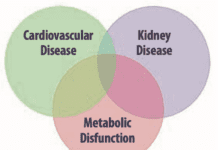A new Italian study reports that antioxidants in the diet were associated with a reduced risk of the most common kind of stroke. Among 41,620 study participants, those with diets highest in total antioxidant capacity (a measure of several different antioxidant compounds and their interactions) were 59% less likely to suffer an ischemic stroke. Such strokes occur as a result of an obstruction within a blood vessel supplying the brain.But its too soon to bank on antioxidants to protect you from stroke, cautions Jeffrey B. Blumberg, PhD, director of Tufts HNRCA Antioxidants Research Laboratory. The total antioxidant capacity measurement used is only one of many such assays, so the results might differ with an alternate assay. Blumberg adds, The antioxidants described here are measured in selected foods and incorporated into a nutrient database-there is no assessment of antioxidant status or action in people. And is the putative benefit here really due to an antioxidant action or some other mechanism of action of the nutrients measured by this assay?The study, by Nicoletta Pellegrini, PhD, of the University of Parma, and colleagues, used participants in EPICOR, a collaborative prospective investigation into the causes of cardiovascular diseases in the Italian segment of the large EPIC study. None had previously suffered a stroke or heart attack. They completed food-frequency questionnaires at baseline; no followup questionnaires, however, were given to measure any changes in antioxidant consumption during the study.More than half the antioxidants in the diet of the study population came from coffee, wine and fruit. Coffee is known to reduce blood pressure, a key risk factor for ischemic stroke.Over an average followup period of almost eight years, participants suffered 112 ischemic strokes. There were also 48 cases of hemorrhagic stroke, which results from a weakened vessel that bursts and bleeds into the surrounding brain (such as an aneurysm), and 34 other kinds of stroke.After adjustment for other lifestyle and risk factors, total antioxidant capacity was associated with a significantly lower risk of ischemic stroke, but not hemorrhagic stroke. Vitamin C intake was especially associated with lower ischemic-stroke risk, but the link between antioxidants and reduced risk remained even after controlling for vitamin C-ruling out vitamin C as the sole factor in the relationship.Pellegrini and colleagues couldnt explain the mechanism for any protective benefit from antioxidants against ischemic stroke, and the study was not designed to prove cause and effect. Researchers suggested antioxidants might reduce stroke risk by fighting inflammation and by effects on the vascular system or reductions in blood pressure.TO LEARN MORE: Journal of Nutrition, January 2011; abstract at jn.nutrition.org/content/141/1/118.abstract. What You Can Do to Prevent a Stroke, August 2010 Healthletter Special Supplement.
- #7213 (no title)
- About
- Cart
- Checkout
- Contact the Editor
- Contact Us
- Content restricted
- Customer Service
- Glossary
- Nutrition 101 – Glossary – J
- Nutrition 101 – Glossary – K
- Nutrition 101 – Glossary – L
- Nutrition 101 – Glossary – M
- Nutrition 101 – Glossary – N
- Nutrition 101 – Glossary – O
- Nutrition 101 – Glossary – P
- Nutrition 101 – Glossary – Q
- Nutrition 101 – Glossary – R
- Nutrition 101 – Glossary – S
- Nutrition 101 – Glossary – T
- Nutrition 101 – Glossary – A
- Nutrition 101 – Glossary – B
- Nutrition 101 – Glossary – C
- Nutrition 101 – Glossary – D
- Nutrition 101 – Glossary – E
- Nutrition 101 – Glossary – F
- Nutrition 101 – Glossary – G
- Nutrition 101 – Glossary – H
- Nutrition 101 – Glossary – I
- Nutrition 101 – Glossary – U
- Nutrition 101 – Glossary – V
- Nutrition 101 – Glossary – W
- Nutrition 101 – Glossary – X
- Nutrition 101 – Glossary – Y
- Nutrition 101 – Glossary – Z
- Manage Email
- My Account
- OFIE – Subscriber only
- Online Account Activation
- Privacy Policy
- Products
- Products
- Register
- Register
- Registration Complete
- Registration Complete
- Sample Page
- Subscribe
- Subscribe Now
- Tufts & Health Nutrition
- Tufts & Health Nutrition | JH Inforce
- Tufts & Health Nutrition | JHV Employee
- Tufts & Health Nutrition | John Hancock
- Tufts & Health Nutrition | Manulife Asia
- Tufts & Health Nutrition | Manulife Vitality
- Tufts & Health Nutrition | NU101
- Tufts & Health Nutrition | Tufts Employees
Copyright 2020 Tufts University Health & Nutrition Letter























